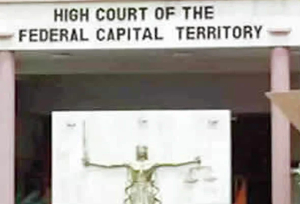ACCRA, Ghana (NNPA) – As part of its celebration to commemorate 50 years of independence from Britain, the government of Ghana put on a huge fireworks show. But the sparks launched high into the sky were nothing compared to the ones generated on the ground by Jesse Jackson and HUD Secretary Alphonso Jackson and Jesse L. Jackson.
After a series of television interviews in which he strongly criticized President Bush for not attending the festivities Jesse Jackson played the role of an ant at a picnic when he decided to blast Bush at a reception hosted by U.S. Ambassador Pamela E. Bridgewater, also an African-American.
“In 1957, when the Union Jack [British flag] did fall, Adam Clayton Powell was here, Charlie Diggs was here, Dr. King was here, A. Philip Randolph was here,” he said, referring to Black Congressmen and civil rights leaders. “The United States sent the vice president [Richard Nixon] to honor that occasion,” Jackson said. “Now, 50 years later, with quite a few members of the Black Caucus, a Secretary of State who’s an African-American, we send the Secretary of Housing without a diplomatic portfolio. That does not sit well with us.”
Some members of the Congressional Black Caucus in attendance applauded Jackson’s comments. But members of the diplomatic corps cringed. Some were especially embarrassed because although Jackson led an unofficial delegation to Ghana, the U.S. ambassador had extended him many of the courtesies normally given to official delegations, such as the use of vehicles and staff guides throughout his stay.
The official U.S. delegation led by Alphonso Jackson included Ambassador Bridgewater; Millennium Challenge Corporation CEO John J. Danilovich; Ronald A. Tschetter, director of the Peace Corps; Assistant Secretary of State for African Affairs Jendayi Frazer and retired Navy Rear Admiral R. Timothy Ziemer, coordinator of the President’s Malaria Initiative.
Even though the CBC were part of officials events in Ghana, they did not travel on the military plane assigned to transport the Alphonso Jackson delegation to Ghana. Although Secretary Jackson’s group was en route to Ghana when Rev. Jackson made his remarks, he was quick to disagree with the criticism of his delegation.
“As I said to Rev. Jackson, whom I have a great deal of respect for, a Secretary is a Secretary. Wherever we go, we have portfolio,” he said. Secretary Jackson said he had traveled to Ghana two months ago earlier and his presented its president with a $30 million housing planning grant.
“President Kuflour was pleased that I was coming, representing the president,” Jackson said. “In fact, he had asked if I could come about a month ago, after I had been here. He had sent a note to the president and the president responded by asking me to come. So, if you don’t understand the facts, you can make some assumptions. I came here because the president (of Ghana) wanted me here.”
The Jackson v. Jackson standoff notwithstanding, it was clear that Ghananains wanted Jesse Jackson in Ghana. Everywhere he went, he was widely recognized, with residents greeting him with calls as “Jess-see Jackson” or “Mr. Jesse” and seeking to be photographed with him.
As a group of mostly young people going over their last-minute details as hosts for a fireworks show recognized Jackson, he was invited to join them. Jackson did his “I am Somebody” call-and-response routine and about 50 participants joined in, smiling broadly.
Surprisingly, African heads of state reacted the same way. At receptions, dinners and parades, some of the best known names in Africa – Presidents John Kufuor of Ghana, Olusegun Obasanjo of Nigeria, Thabo Mbeki of South Africa, Ellen Johnson Sirleaf, Robert Mugabe of Zimbabwe, among others – joked and chatted freely with him.
“These people know me and I know them,” Jackson said after one reception. “I’m no stranger to Africa.”
Part of Jackson’s popularity stems from the respect the U.S. Civil Rights Movement enjoys around the world. Jackson talked about that parallel track, noting that the famous Brown v. Board of Education Supreme Court decision outlawing segregated schools was issued just three years before Ghana gained its independence.
He said, “In 1954 in America, we broke the background of legal apartheid in America just as we broke the legal backbone of colonialism here in Africa.”
General News of Tuesday, 13 March 2007
Source: NNPA












